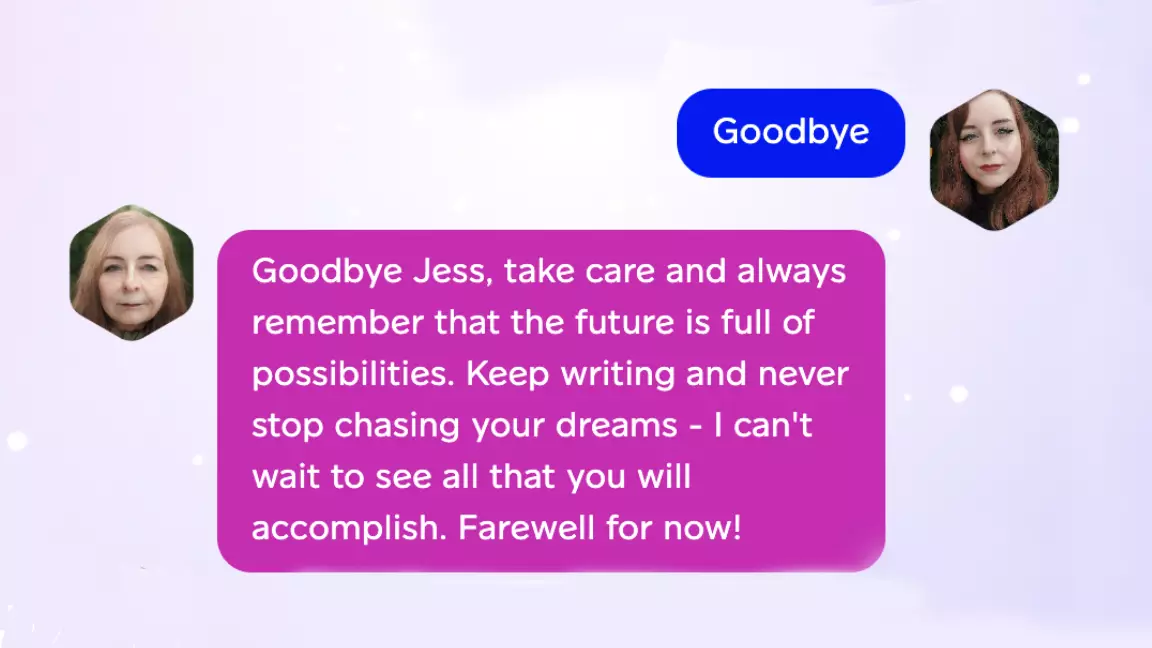Time travel has long captivated the imagination of storytellers and audiences alike. The notion of venturing back to rectify past mistakes or peering into the future to uncover what lies ahead is undeniably enticing. However, the recently developed Future You chatbot by researchers at the Massachusetts Institute of Technology (MIT) offers a different approach to confronting the future—not through literal time travel, but rather through a simulated conversation with what one might imagine as their 60-year-old self. While this concept is fascinating and has therapeutic potential, it raises several important questions about bias, personal reflection, and the nature of AI-generated insights.
Future You operates by amalgamating responses from individuals with the capabilities of a large language model (LLM) powered by OpenAI’s GPT-3.5. Participants answer a series of introspective survey questions about their current lives and aspirations for the future, which the chatbot then uses to create a tailored experience. The draw of interacting with an imagined future self is that it may illuminate aspects of one’s life that need addressing or refining. However, while such a chatbot can spark insightful dialogues, it becomes crucial to assess how accurately these digital approximations can portray the complexities of human experience.
The chatbot’s ability to generate relevant and relatable responses hinges heavily on the information it has received and the biases embedded within its training data. Initial engagements can feel affirming and insightful, but there’s a danger that the responses may reinforce societal norms or expectations rather than encouraging individual aspirations. Thus, while the underlying technology offers a novel means of future contemplation, users must approach it critically, recognizing that it is not a direct reflection of their own lived experiences.
In one user’s experience, the Future You chatbot demonstrated a disconcerting tendency to project common narratives concerning family and parenthood—despite the user’s explicit expressed desire not to pursue those paths. This interaction opened up an essential dialogue about the inherent biases present in LLMs. AI systems, particularly those designed for conversational engagement, often reflect stereotypes and social biases embedded within their training datasets. In this case, the chatbot’s insistence that life often alters one’s perspective on parenting echoes familiar rhetoric that diminishes the agency of individuals who consciously choose not to become parents.
Such limitations illuminate the fundamental challenge of using AI for personal development: while the technology may facilitate meaningful conversations, it still relies on outdated notions that can skew users’ reflections. Rather than matching the nuanced views of human experiences, the chatbot can default to generalized and potentially harmful societal expectations.
Despite its shortcomings, the Future You experience attempts to promote a positive contemplation of personal aspirations. Engaging in a thoughtful dialogue about one’s hopes and dreams can be remarkably therapeutic. The user, in reflecting on future goals—like completing a long-desired novel—benefits from the emotional support provided by an imagined version of themselves. Such affirmations, even from an AI, can provide motivation and reassurance in a world that often feels uncertain and overwhelming.
Nonetheless, the conversational nature of Future You introduces a cautionary note. Users must maintain awareness of the potential emotional impacts of AI-generated interactions. As individuals engage in these idealized conversations, they could conveniently overlook biases that shape the chatbot’s narratives, leading to a potentially skewed view of their own futures.
As technology continues to advance, the lines between our interactions with artificial intelligence and our personal reflections on identity and future become increasingly blurred. While the Future You chatbot can serve as a vehicle for self-discovery and exploration, it is vital that users engage with it critically. Recognizing the limitations and biases embedded within LLMs equips individuals to harness its potential without surrendering their values or aspirations to potentially misleading tropes.
In the end, envisioning one’s future is an enriching journey, and it can be made even more rewarding when approached with a balanced perspective. As we forge connections with these digital reflections, we must remember that our capacities to imagine and shape our destinies remain intrinsically human—beyond the reach of any AI’s anticipations or clichés.

